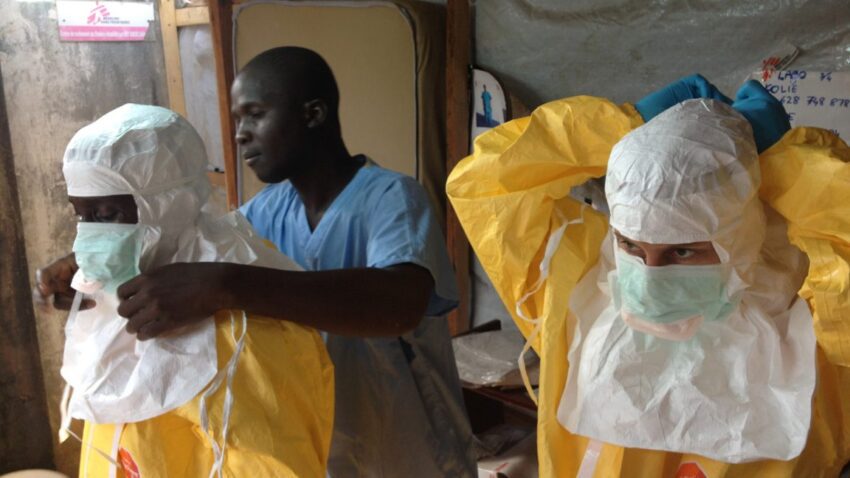
ebola outbreak in dr congo rages with An Ebola outbreak in a southwestern province of the Democratic Republic of the Congo is escalating quickly, as some health responders say they have less than a tenth of the funding needed to contain the deadly disease.
ebola outbreak in dr congo rages with
Overview of the Outbreak
The current Ebola outbreak in the Democratic Republic of the Congo (DRC) has raised significant alarm among health officials and international organizations. The outbreak began with the identification of the first case on August 20, 2025, when a 34-year-old pregnant woman sought medical attention at a local hospital in the Kasai province. She presented symptoms including fever, bloody vomiting, and hemorrhages, which are characteristic of Ebola virus disease. Tragically, she succumbed to the illness just five days later, on August 25.
Following this initial case, health officials began to monitor the situation closely. By September 4, the outbreak was officially declared as the number of cases rose to 28, with 15 reported deaths. As of the latest reports, the situation has worsened significantly, with at least 57 confirmed cases and 35 deaths, leading to a staggering 61 percent fatality rate, according to the World Health Organization (WHO).
Challenges in Containment
Resource Limitations
One of the most pressing issues facing health officials in the DRC is the severe lack of funding to effectively combat the outbreak. Reports indicate that health responders have access to less than 10% of the financial resources required to manage the crisis. This funding shortfall hampers efforts to deploy necessary medical supplies, personnel, and logistical support to the affected areas.
In addition to financial constraints, the geographical challenges of the Kasai province complicate the response. The region is characterized by poor road networks, making it difficult to transport medical supplies and personnel to remote locations where the outbreak is most severe. This logistical nightmare is exacerbated by the urgent need for protective equipment, medicines, and clean water—resources that are already in short supply.
Overwhelmed Health Facilities
The healthcare facilities in the area are struggling to cope with the influx of patients. The only treatment center in the epicenter of the outbreak, located in the Bulape health zone, is currently operating at 119% capacity. This overwhelming demand for medical care has led to critical shortages of essential supplies, including protective gear for healthcare workers and clean water for both patients and staff.
As the outbreak continues to spread, health facilities are becoming increasingly strained. The International Federation of Red Cross and Red Crescent Societies Africa (IFRC) has reported that local health workers are facing dire conditions, with many facilities lacking the basic tools needed to provide adequate care. This situation poses a significant risk not only to patients but also to the healthcare workers who are on the front lines of the response.
The Role of International Organizations
World Health Organization (WHO)
The WHO has been actively involved in monitoring the outbreak and coordinating the international response. The organization has dispatched teams to the affected areas to assist local health authorities in managing the crisis. Their efforts include providing technical support, training healthcare workers, and facilitating the distribution of medical supplies.
Despite these efforts, the WHO has acknowledged the challenges posed by the funding shortfall. The organization has called for increased international support to help contain the outbreak and prevent further loss of life. The need for a coordinated global response is critical, as Ebola is highly contagious and can spread rapidly if not effectively managed.
International Red Cross and Red Crescent Societies
The International Federation of Red Cross and Red Crescent Societies (IFRC) has also mobilized resources to assist in the response to the outbreak. Their teams are working alongside local health officials to provide care and support to affected communities. This includes setting up temporary treatment centers, distributing hygiene kits, and educating the public about Ebola prevention measures.
However, the IFRC has expressed concern over the lack of funding and resources available for their operations. The organization has emphasized the importance of community engagement in the response, as local populations play a crucial role in controlling the spread of the virus. Without adequate resources, their ability to effectively engage with communities and provide necessary care is severely limited.
Implications for Public Health
Potential for Spread
The ongoing outbreak poses significant risks not only to the immediate region but also to public health on a broader scale. The DRC has experienced multiple Ebola outbreaks in the past, and the current situation highlights the persistent vulnerabilities within the healthcare system. If the outbreak is not contained swiftly, there is a real danger that the virus could spread to neighboring countries, exacerbating an already dire public health crisis.
Health experts warn that the combination of inadequate funding, overwhelmed healthcare facilities, and logistical challenges creates a perfect storm for the further spread of the virus. The potential for international transmission is particularly concerning given the interconnectedness of global travel and trade.
Long-term Consequences
The long-term consequences of the outbreak could be profound. Beyond the immediate loss of life, the impact on the healthcare system in the DRC could be devastating. The strain on resources may hinder the ability to address other pressing health issues in the region, such as maternal and child health, infectious diseases, and chronic conditions.
Moreover, the economic implications of the outbreak could be significant. The DRC is already one of the poorest countries in the world, and an outbreak of this magnitude could further destabilize the economy. Disruptions to trade, agriculture, and local businesses could lead to increased poverty and food insecurity, compounding the challenges faced by the population.
Community Response and Engagement
Public Awareness Campaigns
In light of the escalating outbreak, community engagement has become a critical component of the response strategy. Local health authorities, in collaboration with international organizations, are implementing public awareness campaigns to educate communities about the symptoms of Ebola and the importance of seeking medical care promptly.
These campaigns aim to dispel myths and misinformation surrounding the virus, which can hinder efforts to contain the outbreak. By fostering trust and encouraging community participation, health officials hope to improve reporting of cases and promote adherence to preventive measures.
Support for Affected Families
Support for families affected by the outbreak is also essential. Many families have lost loved ones to the disease, and the psychological toll can be significant. Community-based support systems are being established to provide emotional and practical assistance to those impacted by the outbreak. This includes counseling services, financial support for burial practices, and assistance with daily needs.
Conclusion
The ongoing Ebola outbreak in the Democratic Republic of the Congo is a stark reminder of the vulnerabilities within global health systems. As the situation continues to evolve, the need for increased funding, international cooperation, and community engagement is more critical than ever. Without a concerted effort to address the challenges at hand, the outbreak could have devastating consequences for the region and beyond.
Source: Original report
Was this helpful?
Last Modified: September 27, 2025 at 12:36 am
1 views















